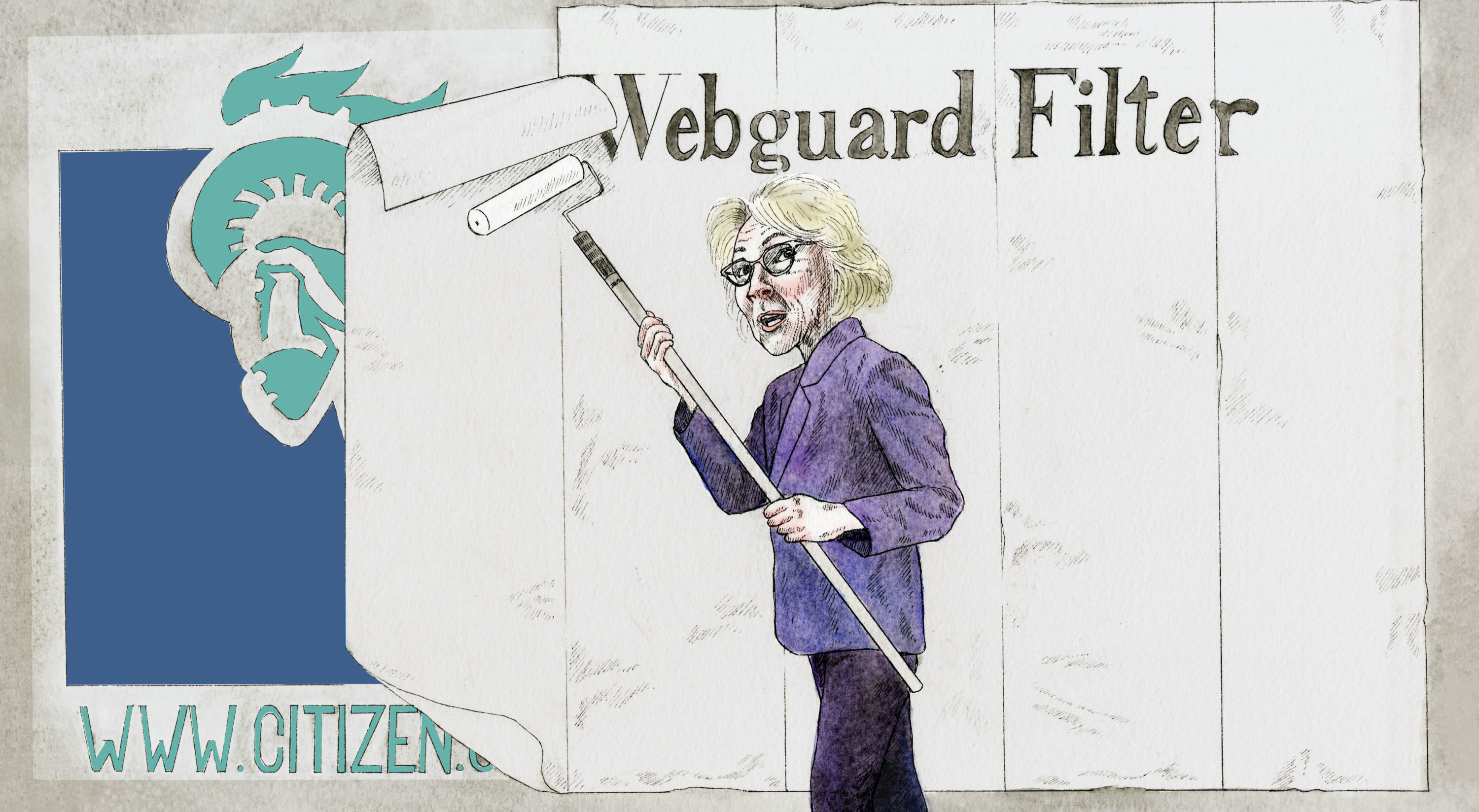
U.S. Department Of Education Lifts Block On Public Citizen Website
This case highlights the increasing control of technology companies over what information Americans see and hear. When a government website is involved, officials cannot turn a blind eye to constitutional concerns by outsourcing responsibility to private contractors. They must maintain careful oversight of their operations to ensure compliance with constitutional requirements.Nandan Joshi, Public Citizen attorney
In 2018, Public Citizen board member David Halperin was attending a meeting at the U.S. Department of Education when he tried to access Public Citizen’s website. To his surprise, he was met with an error message:
“Web Access Webguard Filter Violation … You have tried to access a web page which is in violation of your Internet usage policy. … Category: Advocacy Organization.”
His inability to access our website wasn’t a fluke. In subsequent meetings at the department, other people confirmed that they were not permitted to access the website while on the department’s WiFi network.
Public Citizen sued the Department of Education on the ground that blocking access to the website violated the First Amendment. The litigation revealed that the department had requested its web filtering service provider, a company called Fortinet, to block websites categorized as “adult/mature.” In addition to pornographic and gambling websites, the company categorized citizen.org and some other advocacy websites as adult/mature,
The lawsuit did the trick. The Department of Education unblocked citizen.org and the other advocacy organization websites that we had identified. Public Citizen then dismissed the lawsuit.
This case was a win for Public Citizen, which succeeded in restoring access to its website on the department’s network, but it revealed how the sometimes arbitrary choices of internet companies impact public access to information.